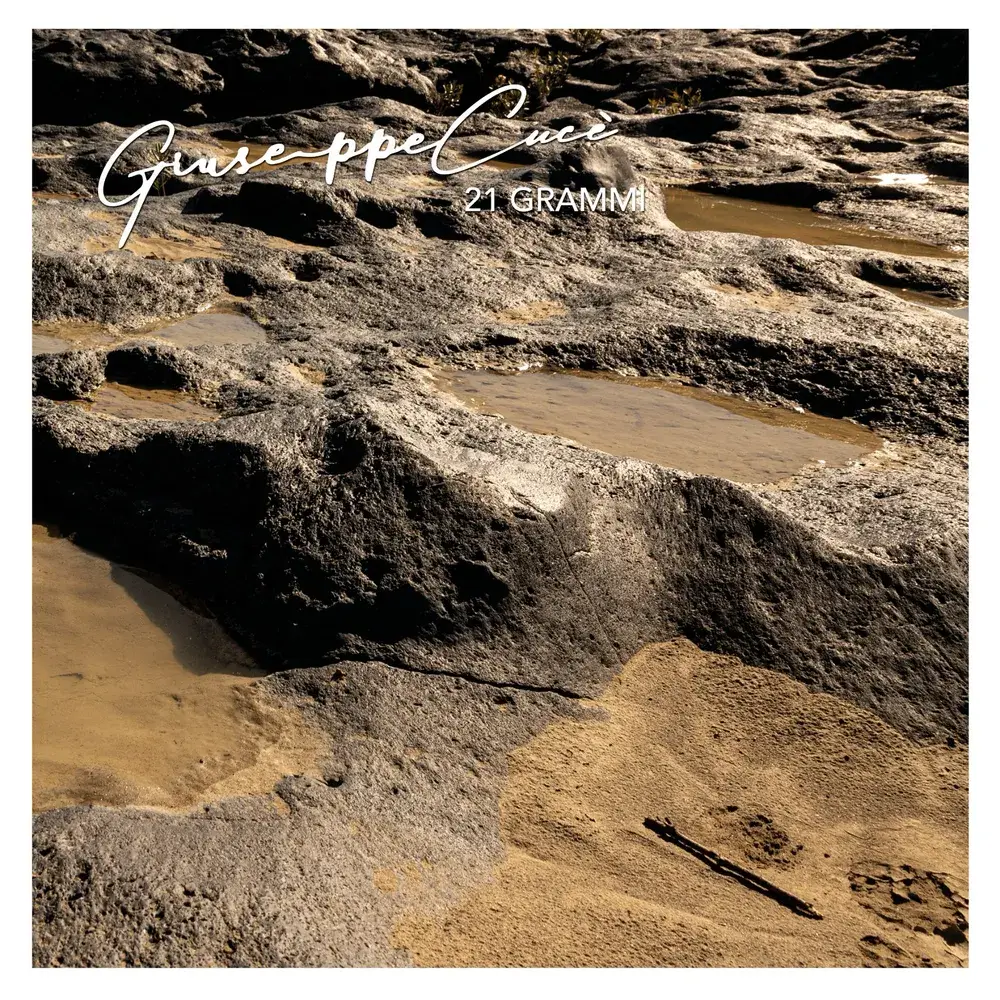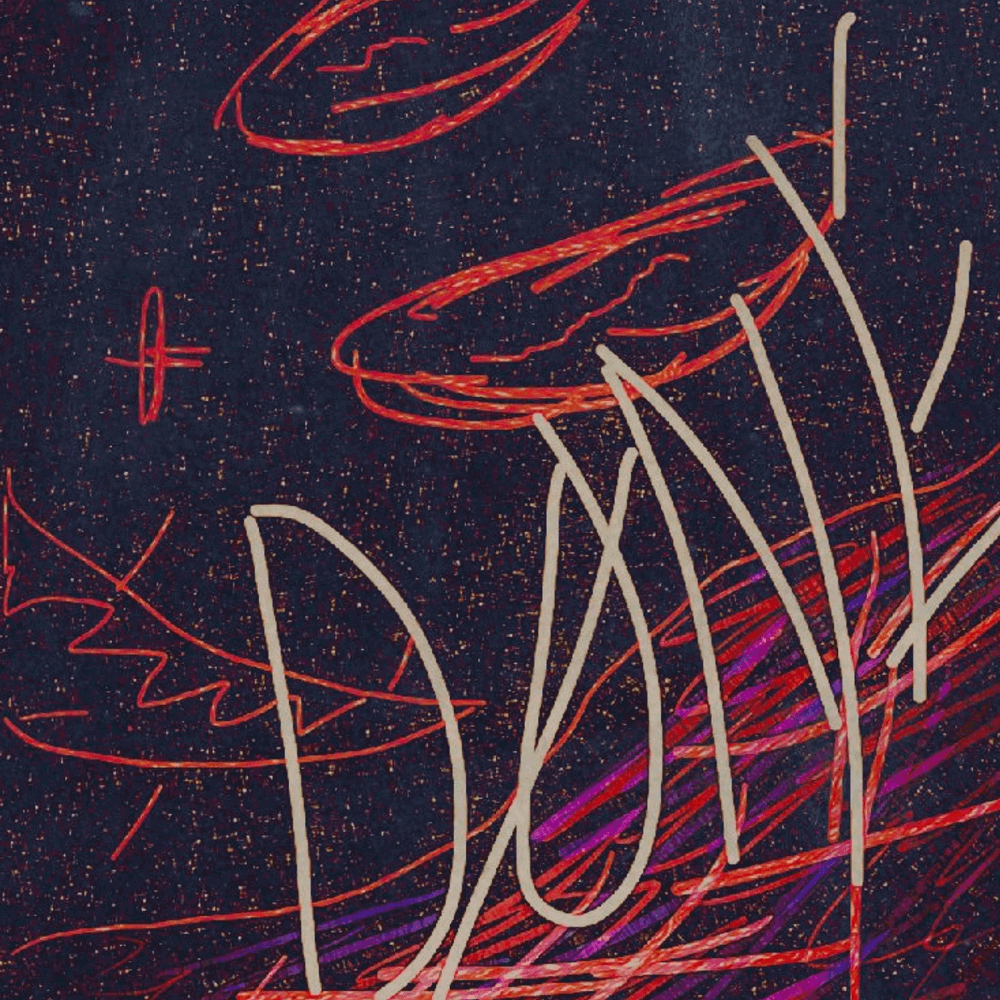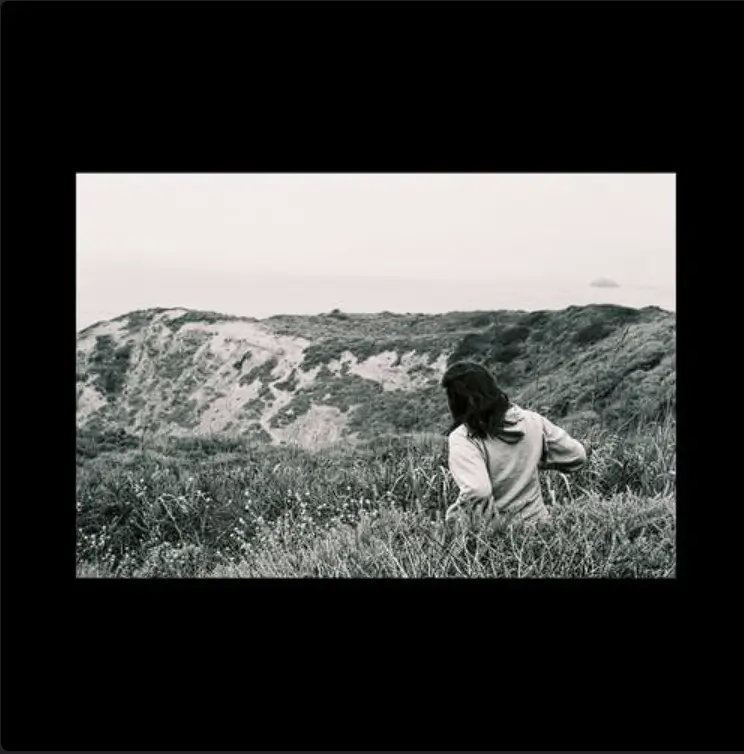I’ll be honest: I understand only a bit of Italian; just enough to recognize when someone is talking about love, death, food, or all three simultaneously, which is about 90% of Italian music anyway. And yet 21 Grammi, the new album from Giuseppe Cucè, completely disarmed me. It’s one of those records that bypasses language, crawls under your ribs, and sets up its own little internal cinema where all your unresolved feelings suddenly have starring roles. It’s operatic, emotional, melodramatic in the best possible way, and it made me feel things I didn’t have the vocabulary for in any language. Essentially, it weighs far more than twenty-one grams; just not in a way that would hold up in court.
So, 21 Grammi. The title comes from the old myth that the human soul weighs exactly twenty-one grams. A claim which scientifically speaking is about as rigorous as a BuzzFeed quiz trying to determine your personality type based on which pasta shape you identify with most strongly. But as a metaphor? It’s incredibly powerful, and Cucè leans into it with the enthusiasm of someone who has absolutely decided this is going to be his entire aesthetic era. And honestly? He’s right. Because every track on this album behaves like an attempt to measure something invisible: grief, longing, desire, the strange floating feeling between heartbreak and hope. It’s a concept album without the pretension of being a Concept Album™, which is refreshing.

Recorded and mixed at TRP Studios in Catania with producer Riccardo Samperi, the whole album sounds like it’s been engineered for dramatic walking scenes. You know the type: staring into the middle distance, thinking about the love you lost; or worse, the one who still follows you on Instagram. The blend of Italian cantautorato, soul, ambient orchestral textures, and modern production gives everything a cinematic sheen. If someone told me Cucè secretly wrote this while pacing a balcony in the rain, I’d believe them without hesitation.
The opening track “È tutto così vero” sets the tone immediately. Cucè sounds like he’s just discovered some emotional truth he’d been hiding from himself, and he’s singing it before he can chicken out. The production is minimal but glowing, like the musical equivalent of good lighting in a bathroom mirror. It’s vulnerable, sincere, and just melodramatic enough to let you know you’re in for a journey.
Then comes “Ventuno”, which is basically the album staring directly into the camera and saying, “Yes, the number twenty-one is symbolic, please keep up.” It’s one of the most atmospheric tracks, all airy synths and heartbeat rhythms. Cucè seems to hover over the song rather than sit squarely inside it, which fits its theme: the liminal space between who you are and who you might yet become. It’s the audio equivalent of a fog machine: unnecessary in theory, essential in practice.
“Dimmi cosa vuoi” shifts gears into a kind of emotional interrogation; beautifully so. Cucè practically demands clarity from someone who is obviously being evasive, and the music matches that energy by swelling at just the right moments. If you’ve ever had a conversation where you wanted to ask “Are we doing this or not?” but instead texted “lol ok np”, this track will hit you like a brick.
The middle portion of the album is where Cucè goes full theatrical mode in the best possible way. “Fragile equilibrio” feels like it’s balancing on a wire over a canyon of feelings. “La mia dea” is essentially a hymn disguised as a love song; calling someone your “goddess” hasn’t sounded this sincere since ancient Greece. “Cuore d’inverno” is a cinematic gut punch; everything cold, glittering, and emotionally repressed, like the dramatic winter scene in every prestige drama where someone stares at a frozen lake thinking about their ex.
By the time we reach “Tutto quello che vuoi”, Cucè has fully settled into his role as a man who is both offering everything and simultaneously questioning why he feels compelled to. The melody rises, the orchestration sweeps, and suddenly you’re in your own personal film montage even if you’re just unloading the dishwasher.
Then we glide into “Una notte infinita”; dreamy, nocturnal, and shimmering like a streetlight reflecting off wet pavement. It’s a late-night drive song, but the kind where you’re replaying old conversations in your head and assigning them new meanings. Extremely healthy behavior.
The album closes with “Di estate non si muore”, which translates to “In summer, one does not die.” Bold claim. But emotionally? Absolutely true. This warm, luminous finale ties everything together, suggesting that even after heartbreak, cold seasons, and existential balcony pacing, there’s still something in us that refuses to disappear. Something that weighs oh, I don’t know; roughly twenty-one grams.
And here’s the thing: even with my limited Italian, 21 Grammi didn’t need me to understand every lyric. It communicates with tone, texture, and emotional subtext. It’s a record that performs its feelings with total sincerity, and sincerity is a language I understand fluently. Cucè has made an album that’s cinematic without being self-indulgent, vulnerable without collapsing into melodrama, and poetic without drifting into parody. It’s beautiful, operatic, and quietly devastating and it proves that sometimes the heaviest things in life are the ones with almost no measurable weight at all.
Follow Giuseppe Cucé
Promoted Content
About the Author

A tenured media critic known working as a ghost writer, freelance critic for publications in the US and former lead writer of Atop The Treehouse. Reviews music, film and TV shows for media aggregators.






